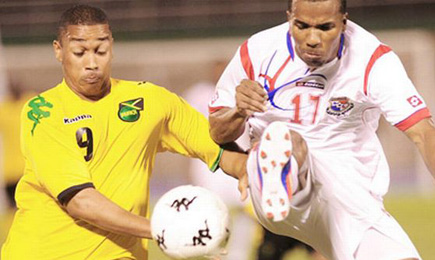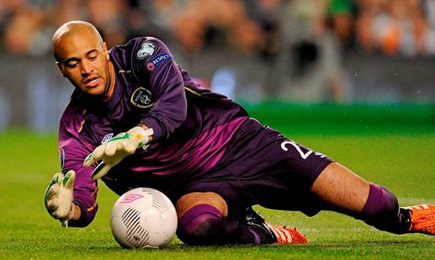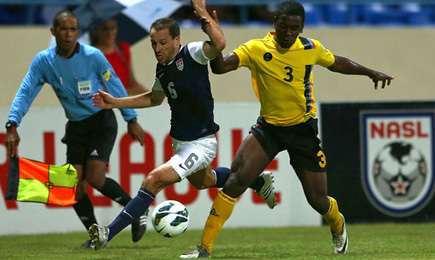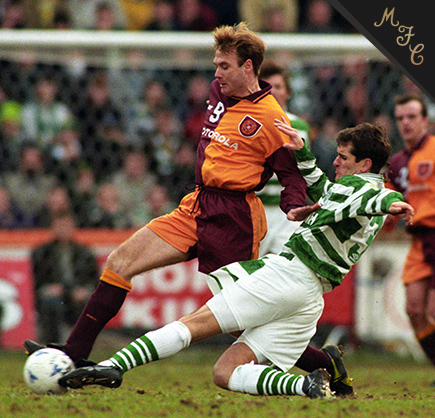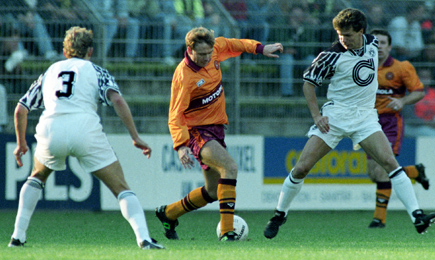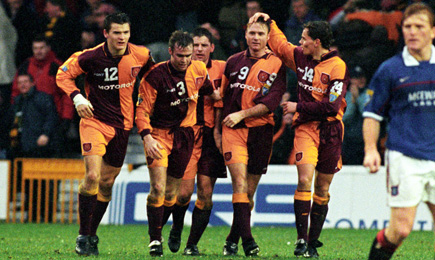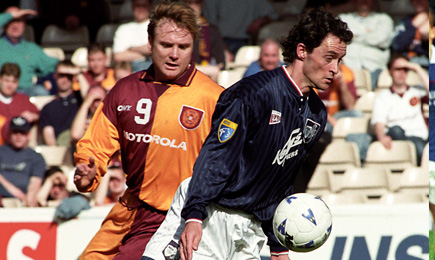The legend of Robert Ferrier began in Sheffield when he was born to a father who himself was a football icon of the local “Wednesday” football club.
His dad had previously turned out for his local side Dumbarton at a time when the Sons were operating at the very top of Scottish football, winning the title twice in successive seasons, before being transferred to Sheffield Wednesday in the summer of 1894.
Ferrier senior, “Rabbie”, spent 12 years in South Yorkshire appearing 329 times for the side, who at that time, played at Owlerton Park. The Scot played his part in helping the Owls gain promotion to the top division in England, and then, securing two league titles in 1903 and 1904.
Rabbie it seems, was a fine wing half who to this day is revered at Hillsborough, where he can still be seen on the walls of the stadium with his team mates complete with, ankle high football boots, knee length shorts and excellent moustaches. Three weeks after his birth, young Robert was brought back to Dumbarton, and lived there for the rest of his life.
Ferrier’s career at Motherwell, his only club, was incredible not only in its length and quality, but in its achievement. For eight seasons in the period between 1926 and 1934, Motherwell were never out of the top three in Scotland. When the Steelmen won the championship in 1932, they were the only team outside the Old Firm to do so in 44 years.
Even then, Scottish football was dominated by the two large Glasgow clubs. Ferrier was captain of the title winning side and always maintained that they were the greatest team he ever played with, although he rated the Motherwell side of the early 20s, including stars like Willie Rankin, Davie Thackeray and Hughie Ferguson, almost as highly.
The Motherwell championship winning team was a side of moulded talents allied with a supreme elegance and style. That season 66 points were won from a possible 76, with 119 goals being scored in 38 matches, with legendary striker Willie McFadyen netting 52 times.
Bobby Ferrier had a long, lazy and deceptive stride which allowed him to float past defenders with ease. He could flick, clip and back heel in the air, balls any other player could not reach. His was a game of spaces and angles played with infinite grace, and his control of a ball through the air was often quite exquisite. He could float, chip, hook or slice crosses to his liking with a left foot which many commentators claimed was akin to a magic wand.
That left peg also possessed enough strength to allow him on occasion to the drill a ball into an opponents net with accuracy and power. In 1929-30 Ferrier scored 32 goals from 37 games playing in his favoured left wing position, often scoring from the touchline, beating goalkeepers at both the near post, and drifting a cross by them, and nestling the ball inside the far post.
Ferrier was a cultured footballer in an era where many hard men were playing the game. Players like Meiklejohn and McPhail of Rangers, with McGrory and McGonagle at Celtic, would rejoice in repeatedly going in heavy on Ferrier, but the Motherwell man would routinely get up dust himself down and continue his task of mesmerising full backs.
It all began for Bobby as the Great War was nearing a conclusion in December 1917, when he signed as a teenager for Motherwell from Junior outfit Petershill.
He would go on to be an integral part of the football club for an incredible 22 seasons. His first two goals for the club came almost a year later on a cold crisp day down at Rugby Park, with the visitors earning a good 2-0 win in front of 4,000 hardy punters.
A week later Bobby would open the scoring at Fir Park against champions-elect, Celtic, as the Glasgow hoops were swept aside with ease by the Steelmen. His final goal of his debut season came on Ne’erday at Douglas Park, as 10,000 excited Lanarkshire folk witnessed a terrific derby.
Hughie Ferguson had netted twice for the ‘Well before the Accies pulled one back. As the second half wore on, and the game raged from end to end, Ferrier broke free and fired home to send the Motherwell fans back across the Clyde wishing all and sundry a Happy New 1919.
That first full season for Ferrier saw the club finish a very respectable fifth in an 18-team top division, with Bobby appearing 16 times. The following few years saw him firmly establish himself in “Sailor” Hunters’ first XI, as Motherwell became a major threat in domestic competitions.
However in season 1924/25, injuries impacted greatly on the manager’s ability to put a consistent team on the park, resulting in a disappointing campaign. One of the few highlights of that season came in January with a 1-0 win at Parkhead, as the Fir Parkers produced a sparkling performance to beat Celtic.
The decisive winner came after Ferrier had weaved his way through the home defence and fired in a fierce drive, which the Celtic ‘keeper could only parry into the path of Hughie Ferguson. The prolific Motherwell centre forward then gleefully swept the ball home in front of the 12,000 crowd.
At the end of that season there was a shock for the Motherwell fans when Bobby turned down the terms offered by the club in a new contract, and was promptly placed on the transfer list with a fee of £100 on his head. Happily by the time the squad had reported back for pre-season, the left winger had signed on again, and he could continue his career where he belonged, at Fir Park.
In March 1926, as per terms of his new contract, Bobby was given the gate money from the league game at Fir Park against Celtic. This was seen as a benefit for his years of great service to the club, and was made captain for the day. As far as we know, this was the first time that a Motherwell player had been awarded a benefit or testimonial of any kind.
Happily, it would turn out to be a victorious occasion for Ferrier and his teammates. Dick Little had fired a free kick passed the Celtic ‘keeper, before Tennant latched onto a Ferrier pass and buried an accurate drive passed the helpless visiting custodian to secure a 2-1 win in front of an ecstatic home crowd.
By the summer of 1927, Motherwell were keen to exploit the world’s developing love of Scottish football by arranging lucrative tours during the close season. That summer, Spain and France were the destinations, where eight games were arranged for a Motherwell squad now captained by Ferrier.
The captain had a very productive time of it on tour with goals against both Swansea City and Real Madrid, a double against Celta Vigo and a hat-trick in Paris against Red Star Olympique. Six games were won, with only one loss, and scoring 23 goals in the process.
This successful tour, combined with the excellent season that had gone before, had set Motherwell up for an unprecedented run of success over the next decade, as they put up a sustained challenge to the two Glasgow clubs who had dominated league football in Scotland since the game had turned professional in the late 18th century.
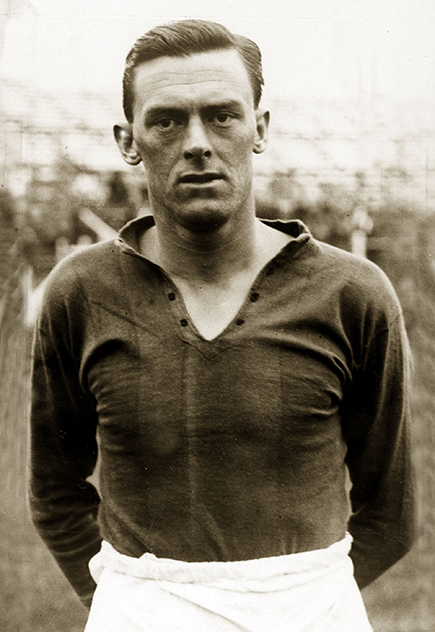
A cracking start to the following season by the Steelmen meant that there was a great deal of anticipation for the visit of Rangers to Fir Park in September. The club had announced that it would be bringing in “horses to help cart ashes to extend the capacity of the ground.” As it turned out, the game drew 30,000 fans who witnessed a rather tame 1-1 draw.
‘Well captain Ferrier had put Motherwell into the lead before a penalty, which was converted, brought parity.
By the time the 1929-30 season kicked off, Motherwell fans had every reason to be upbeat, as they had an astute set of directors, a visionary manager, a much improved ground with a group of loyal and talented players who were seen as second to none in the country.
The ground improvements had seen over £1,000 spent on a new concrete wall around the pitch, a “state of the art” drainage system installed, and work done to extend the playing surface to 100 yards by 70 yards. These improvements allowed the capacity of Fir Park to be increased to 35,000 with plans in place to extend that further to 40,000. The season itself was tremendous, with the club finishing runners up, five points behind Rangers.
A trip to Celtic Park in March gives us a flavour of how the Steelmen were performing. It was reported that Motherwell produced a stunning exhibition of football to overcome the Glasgow club 4-0, thanks to a Dowall hat trick and a Ferrier strike.
On Christmas Day 1930, manager Hunter left out centre forward Dowall at Firhill against Partick Thistle. In came Willie McFadyen, and for the first time Motherwell’s “Famous Five” forward line played together in a 3-0 win, in which three of them scored.
For the next few years the names of Murdoch, McMenemy, McFadyen, Stevenson and Ferrier, were on the lips of every Motherwell fan.
By April 1932 the Fir Parkers were on the verge of achieving something special, with captain Ferrier only having missed one game in all competitions, and scoring 16 times in that campaign. With three league games to go Motherwell, travelled to Firhill looking to confirm themselves as champions with a win, and as a result a huge army of fans headed through from the Steel Town to the north side of Glasgow in anticipation of a wonderful occasion.
The 32,000 crowd, including legendary entertainer Harry Lauder, were largely disappointed with the dull 0-0 draw which left Motherwell still looking for a point from the last two games.
A 3-0 win at home to Cowdenbeath, in which Ferrier opened the scoring, left a chasing Rangers outfit with no margin for error. That margin was lost the following midweek when the Ibrox club could only draw leaving Motherwell as champions of Scotland by the time they took the field for the final game of the season at Fir Park against Clyde.
The title triumph was dedicated by the players to manager Sailor Hunter, who had spent years developing a squad and a way of coaching which was years ahead if its time.
In an interview shortly after the success, John Hunter explained his strategy. “I give the players a square deal, make sure they are happy and have harmony in the dressing room,” he said.
“As an old player, I am conversant with the ups and downs of the players. Make your ambition theirs, get their confidence, exercise discipline reasonably and the best that is in them will emerge spontaneously.”
The following season saw a spirited defence of the title which fell tantalisingly short, finishing narrowly behind Rangers.
That championship was ultimately decided in an action packed February afternoon at Fir Park. The Steelmen had taken the lead with a typical Ferrier dribble and shot. Shortly after the visitors had equalised, an incident saw Rangers forward, Sam English deliberately charge into ‘Well ‘keeper, Alan McClory, who retaliated and was sent off on the advice of the linesman.
Bobby donned the gloves, but was beaten by the resultant penalty and the Light Blues held on for a controversial and decisive victory.
April 1937 saw the great man’s final goals for Motherwell, a brace in a 6-0 demolition at Fir Park against Dunfermline, whilst his final season registered as a player was 1937/38. After the summer of 1938, Bobby, with his boots hung up, was appointed Motherwell’s first ever assistant manager. This meant the break-up of one of the greatest wing partnerships the game had ever seen, lasting almost 15 years.
Much of Motherwell’s success can be laid at the feet of the partnership of George Stevenson and Ferrier, and the club’s refusal to sell them on. This, despite the number of blank cheques offered by other clubs to remove this golden partnership from Fir Park. During his Motherwell career, Bobby played 697 games, scoring a grand total of 345 goals, 262 of which were in the league.
The adulation he experienced in Lanarkshire from the Motherwell fans would surely have been replicated throughout the country had he been eligible to play for Scotland. Having been born in England, something he always cursed, and stayed only for a matter of weeks, it was enough to stop Bobby from representing “his” country.
Bobby Ferrier was without question Motherwell FC’s greatest ever outside left. He had all the qualities that a winger requires: great skill, peerless dribbling and pin point crossing. Of course, he also made innumerable opportunities for others with a vision and a passing ability second to none. With a knack of shooting with power and accuracy, he was also a prolific scorer in his own right, notching close to 350 career goals, an astonishing return for a wide man.
Robert “Bobby” Ferrier died in April 1971, aged 71, and is buried in Dumbarton. Revered in his time by Motherwell fans, he should still be revered by Motherwell fans today, because if ever we had a truly world class footballer at our club that we should celebrate, then Bobby Ferrier is that man.
Eddie Ferguson

















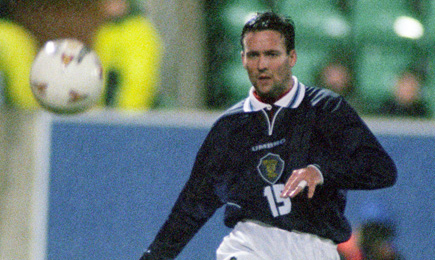

 David Clarkson and Ross McCormack (Scotland, 2008)
David Clarkson and Ross McCormack (Scotland, 2008)